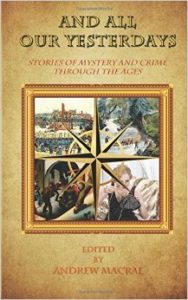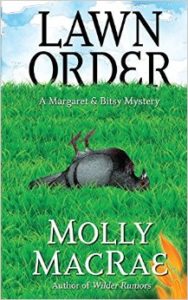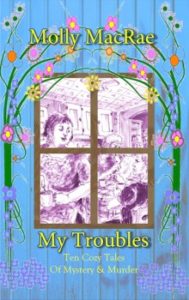 by Andrew MacRae
by Andrew MacRae
My teenage mind was blown years ago when I discovered the anthology Dangerous Visions, edited by science-fiction great, Harlan Ellison. Not only because of the stories and the incredible introductions Ellison wrote for each. For me, the very concept that an individual could commission stories for an anthology was ground-shaking. I immediately began making notes for anthologies I would someday publish, though at the time I had no idea how it could be accomplished. Indeed, the barrier to publishing was high and wide back then.
Fast-forward several decades. Seismic shifts in the way books are published make it possible for micro-publishers such as Darkhouse Books to produce quality e-books and paperbacks without mortgaging the future. Among our titles are, The Anthology of Cozy-Noir and And All Our Yesterdays, a collection of historical mystery and crime stories. Coming soon, Stories from the World of Tomorrow, our first foray into science fiction. Also coming is Destination: Mystery! a collection of cozy mysteries set in popular vacation places.
Putting together an anthology is much like producing a play. You put out a call for auditions (submissions), audition potential cast members (read and rank the submissions), select the cast (choose the stories) based on who is good for the role and fits in with others already chosen, rehearse with them (edit the stories), and assemble the order of the stories.
That bit about ensuring a good fit with other stories is key to understanding rejections. A good actor or a good story may not make the cut, not due to a lack of talent or quality, but because of a mismatch with others already selected. An actor may be too tall for a role, or a story too long. An actor’s voice may not blend with the cast, while a story’s narrative voice may not fit the anthology.
We receive over a hundred submissions for each anthology. It takes many hours to work through them, and we begin that process a few weeks prior to close of submission. We usually receive a slew of stories in the last two or three days, and so try to prepare in advance.
After the stories are selected and contracts accepted and signed by the contributing authors, the task of editing them is at hand. We work closely with our authors to ensure their story is the best it can be. Overused words are hunted down and eliminated, clichés are condemned to the literary scrap bin, and tense and point of view are closely examined to ensure rational usage.
When it comes to laying out the order of the stories for an anthology, we have several goals, but first and foremost is to keep the reader turning the pages. We want them to turn the page when they finish a story and immediately read the next. When they are done with the entire book, we want them to think back on the stories and feel that the time spent reading them was well used.
We accomplish this by starting with the story that best captures the anthology’s theme. In The Anthology of Cozy-Noir, veteran writer Robert Lopesti’s lead-off story, “The Smallville Way”, aptly captures the unusual mixture of sub-genres that is cozy-noir.
The first few stories in an anthology set an expectation of style and content for the rest of the book. We establish a rhythm with the stories as we continue to add them, interspersing more action-oriented stories with ones more reflective or lyrical, and following a story of dark and bitter despair with one of happier note.
While doing this, we make a point to anchor the middle of the book with two strong stories, back to back. Although we have nothing to point to except intuition, we believe there is a risk of readers reaching the middle of a collection and putting the book down.
We save three strong stories for the end. They should lead well from one to the next, building tension and setting a pace that pulls the reader through to the last page.
Finally, the last line of the last story has to be great. It must put a smile on the face of readers and leave them wanting to read more.
Available from Darkhouse Books, Niles, California:






Great post. Very informative. Thanks for sharing your experience, Andrew.
Astute as usual, Andrew. Thanks.